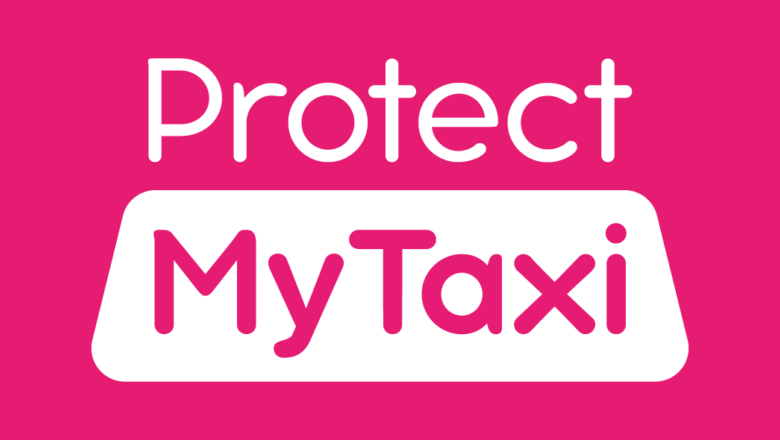
Why Do I Need Business Fleet Insurance?
No matter how diligent you are in business, accidents can always happen, which is why you need fleet insurance. Fleet insurance is meant to make your life easier by allowing you to insure all of your vehicles under one policy and have just one renewal date.
Fleet insurance for business owners
Commercial vehicle fleets are commonly used by business owners to carry out necessary tasks and manage daily operations. The security of these valuable assets is protected, and the overall risk is reduced thanks to insurance, which is relied upon by business managers.
When it comes to including multiple company vehicles under a single policy, insurance is typically thought to be the best choice. By forgoing the need to separately purchase insurance for each vehicle in their fleets, business owners who purchase insurance may be able to save time, money, and hassle.
Everything you need to know about fleet insurance, including its normal coverage and prices, will be covered in this article. We’ll discuss fleet management tips as well as the top advantages of fleet insurance, in addition to offering advice on how to keep a safe fleet of vehicles.
The Best Commercial Fleet Insurance Will Keep Your Fleet Safe.
Many enterprises, including car rental agencies, taxi companies, building firms, and delivery services, have a large fleet of commercial vehicles, including vans, automobiles, trucks, and heavy goods vehicles (HGVs), which they frequently use for business.
Purchasing individual insurance for each vehicle the company owns may seem manageable if there are just two or three cars in the fleet, but as the number of commercial vehicles grows, the procedure will become more difficult than it has to be.
Commercial insurance is provided for this reason by insurance providers. It can reduce the amount of paperwork you and your organization have to deal with while also helping to keep your business safe.
People who need fleet insurance
Regardless of the type or size, if you or your company own more than three vehicles, insurance may be beneficial. For instance, it could be more effective for you to have an Any Driver policy if you run a taxi company with a variety of cars, people movers, and minibusses. This way, as the name implies, any of your drivers could choose whichever vehicle best suited the needs of the passengers. Similar to how many vans, Class 2 and Class 1 vehicles a haulage company may own, all of these can be cover under a single policy.
If you’re buying business cars for your managers or employees, you could discover that having named drivers on each vehicle in your Fleet insurance policy is beneficial. It’s possible that you’re buying company commercial vehicles for your executives or employees, in which case a fleet coverage with Designated Motorists on each vehicle could be more appropriate. If you own more than one vehicle, whether they are all the same type or a mix of different types, you ought to be able to insure them all under a single policy, regardless of what you need.
Who could benefit from minibus insurance, then? For the most part, any of the following
- A Taxi Service
- A Haulage Business
- Company Vehicles
- A Bus Line
- A Moving Company
How Does Commercial Fleet Insurance Operate?
A “business insurance” policy provides simultaneous coverage for a number of commercial vehicle fleets. One of the main advantages of commercial insurance is that you can avoid having to get numerous auto insurance policies. Instead, even if your drivers are different, you just need to renew one policy. All the vehicles owned by your company are cover by fleet vehicle insurance. The size of your company’s vehicle fleet will depend on:
Small fleet
Local trade enterprises may have a small fleet of automobiles that they utilize for work. Tiny insurance is what small fleets, often known as mini fleets, choose to purchase.
Large fleet
Large Fleets: For instance, some taxi companies operate a large fleet with hundreds of vehicles. Many fleet insurance for business providers are willing to offer taxi companies large insurance estimates because some of them run hundreds of vehicles.
What Makes Fleet Insurance Necessary?
Commercial auto insurance can be obtain for a fleet of commercial vehicles, including sedans, trucks, vans, commercial vehicles, coaches, and tractor-trailers. Instead of purchasing fleet car insurance for every vehicle individually, commercial fleet insurance is a more cost-effective solution for corporations.
It is not necessary for the cars you insure under a fleet insurance policy to be utilize for the same purpose. For instance, the same fleet policy may cover both your commercial automobiles and your construction trucks.
How many vehicles are require to qualify as a fleet?
According to the insurance provider. In order to qualify as a fleet, some businesses may require five or more vehicles. However, with certain insurers, you may purchase commercial insurance for just two vehicles. But it has been discover that it is most economical when you have at least three vehicles cover by the policy.
What is a fleet’s minimum number of vehicles?
Any business or individual with more than one vehicle has a fleet. Additionally, a fleet need not be own by a corporation in order to qualify. In actuality, though, it depends on the provider you pick; some can handle a modest number of vehicles, while others only offer coverage for larger fleets.
Required Fleet Vehicle Insurance
Federal and state legislation mandates that all fleet cars carry a commercial auto insurance policy. To run a fleet, you specifically need liability insurance that covers property damage, bodily injury, or both in the event that one of your drivers causes an accident. A firm must also meet the minimum liability coverage requirements set by each state. Nevertheless, in order to avoid penalties and maintain compliance. It would probably be a good idea to learn about your state’s requirements for fleet insurance.
Fleet Insurance Coverage Types
Bodily injury cover
What is bodily injury cover by fleet insurance? Liability coverage is a sort of nsurance that provides coverage for any fatalities or injuries resulting from an accident. That was cause by an employee of your company. This coverage typically includes defense.
Property Damage Liability Coverage:
It offers protection in the event that one of your fleet’s cars causes damage to someone else’s property.
Combined Single Limit (CSL) Coverage:
A fleet policy that includes the same level of coverage for both property damage and bodily injury is known as combine single limit (CSL) coverage.
Liability insurance is the main component of insurance requirements. There are additional fleet policy options, though, that can safeguard your company. You should think about getting a policy that combines both when looking for the best business insurance. Consider choosing commercial insurance that provides liability and any specialized coverage your fleet might need.
The following are a few of the fleet insurance options and services they provide:
Physical Damage Coverage:
Physical damage insurance protects your fleet’s cars from disasters like weather-related storms, theft, vandalism, and others.
Uninsured Motorist Coverage:
Your assets are protected if one of your vehicles is in an accident with an uninsured driver thanks to uninsured motorist coverage. You can save money by using this kind of insurance to cover maintenance and medical costs.
Collision Coverage:
If your car is hit by another car or an object. Collision coverage will shield you from having to pay for pricey repairs.




Can you be more specific about the content of your article? After reading it, I still have some doubts. Hope you can help me.
Thanks for sharing. I read many of your blog posts, cool, your blog is very good.